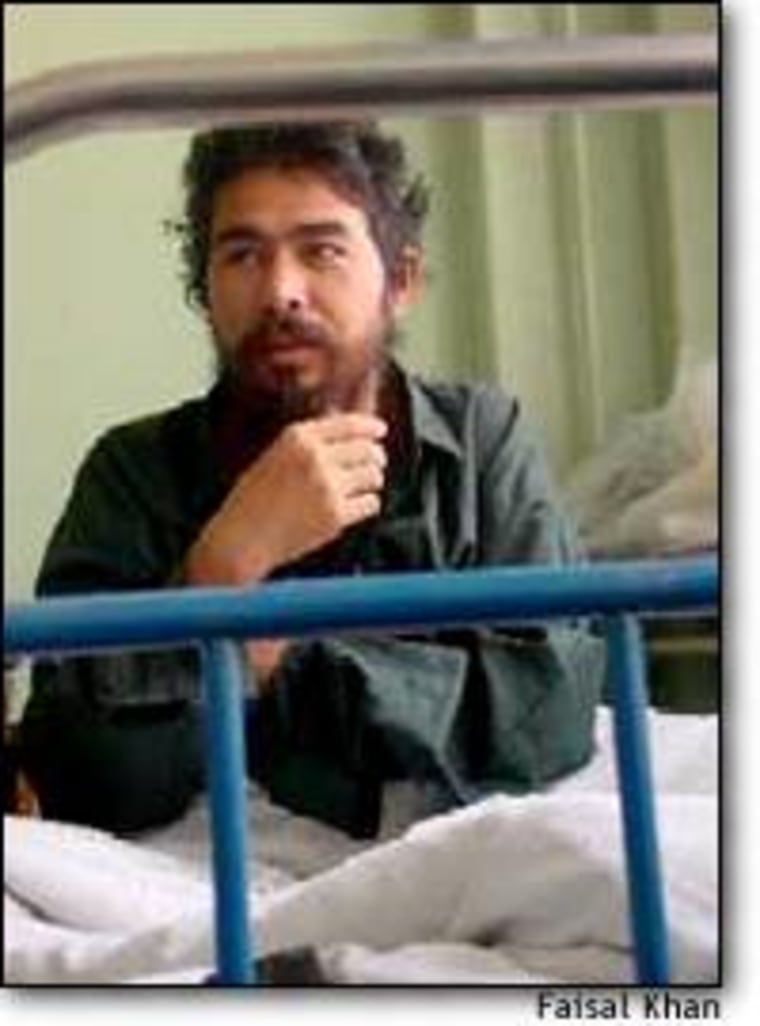U.S. officials have mostly kept mum on the names of specific prisoners at Guantánamo Bay, Cuba. They will say only that there are 384 men from at least 33 countries being held, including more than 100 Saudis, roughly 70 Yemenis, at least 25 Pakistanis, and a sprinkling of European nationals—nearly all of Arab ancestry. But in early May, Washington acknowledged that it was willing to release one prisoner: a 25-year-old Afghan held for four months at Camp X-ray. It turns out that the man was not actually a terrorist, but a schizophrenic sufferer. The Pentagon promptly shipped the Mazar-e-Sharif native off to a hospital in Kabul armed with a six-month supply of medication, then closed the curtain on any further disclosures. It wouldn’t say why the ethnic Uzbek was detained in the first place, why it took so long to diagnose his schizophrenia, or what it had learned from others being held.
NEWSWEEK’s Sami Yousafzai recently tracked down the former prisoner, Abdul Razeq, and spoke with him at length about his experiences. Razeq was released from U.S. captivity on May 11, but he is hardly free: Razeq is now being kept in a maximum-security cell at the hospital with a 24-hour armed guard.
NEWSWEEK: How were you captured?

What happened to you after you were taken from Mazar-e-Sharif?
They took me to American to treat my mental problems. I was taken to a very good hotel and after a month they shifted me to a place where they kept Chechens and Pakistanis [Camp X-Ray]. I was the only Afghan. Afterwards, they flew me back to Afghanistan.
How were you treated by your American captors?
They only once tied my hands. They gave us good food three times a day and biscuits for supper. They were trying to keep us in good health.
Did the Americans interrogate you?
Yes, a lot. They kept asking me, ‘where are you from?’ I told them ‘I am from Afghanistan, in Mazar-e-Sharif.’ They asked me about the whereabouts of Osama bin Laden and Mullah Omar and I told them that I have never seen them.
You didn’t ask them why they put you in jail?
We were all asking them. The Arabs even went on a one-week hunger strike. After one week, the hunger striking Arabs were shifted to another jail.
What were the Arabs doing?
They were reading the Qu’ran loudly, singing songs, making fun of the guards and even once they threw water on soldiers.
Were you able to pray?
Yes, there were no restrictions on our prayers. We were even given a Qu’ran each.
How many hours a night did you sleep?
Only one hour. I was so depressed that I was not able to sleep; I walked around the cage.
What did the jail look like?
It looked like a flat area full of cages. The concrete was burning our feet. [He pointed to his hands and legs to show the injuries from the hand and leg cuffs.]
Do you want any compensation from Americans for arresting you?
No.
Do you know who is ruling Afghanistan now?
Yes, Hamid Karzai. The soldiers told us all the new events in Afghanistan.
Do you remember anything special from your time in jail?
Yes, once an Arab tried to hang himself with his shawl. He almost died and then the doctors came and injected him with something with a big syringe and he stood up promptly.
© 2003 Newsweek, Inc.